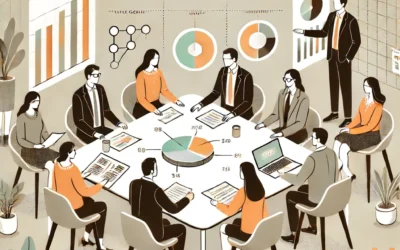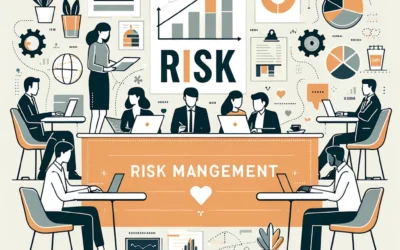Introduction
Effective conflict resolution skills are essential for project managers to ensure team cohesion and project success. Conflicts are inevitable in any project due to differing opinions, priorities, and work styles. By mastering conflict resolution, project managers can address issues promptly, foster a positive work environment, and keep projects on track. This article explores the key conflict resolution skills, processes, tools, and practical tips that every project manager should develop to handle conflicts effectively.
Understanding Conflict Resolution in Project Management
Definition and Importance
Conflict resolution in project management involves the process of addressing and managing disputes and disagreements that arise among team members or stakeholders. Effective conflict resolution is crucial for maintaining a collaborative and productive project environment. It ensures that conflicts do not escalate, disrupt the project, or negatively impact team morale and project outcomes. Conflict management skills are therefore vital for project managers to foster a harmonious work environment and achieve project success.
Types of Conflicts
Conflicts in project management can arise from various sources, including differences in work styles, miscommunication, resource allocation, and competing priorities. Understanding the different types of conflicts, such as task conflicts, interpersonal conflicts, and procedural conflicts, helps project managers address them appropriately. Task conflicts are related to disagreements over project tasks and goals, while interpersonal conflicts stem from personal differences. Procedural conflicts arise from disagreements on how to achieve project objectives. Recognising these types of conflicts enables project managers to tailor their conflict resolution strategies effectively.
Impact of Poor Conflict Resolution
Inadequate conflict resolution can lead to a toxic work environment, decreased productivity, and project delays. Poorly managed conflicts can damage team relationships, reduce trust, and hinder collaboration. Developing and honing conflict resolution skills is essential for project managers to navigate these challenges effectively and maintain a harmonious project environment. Effective conflict management not only resolves current issues but also prevents future conflicts, contributing to long-term project success.
Key Conflict Resolution Skills for Project Managers
Active Listening
Active listening involves fully concentrating, understanding, and responding to what is being said. This skill is critical in conflict resolution as it helps project managers understand the perspectives of all parties involved. By actively listening, project managers can gather valuable information, identify the root causes of conflicts, and demonstrate empathy. Active listening fosters a sense of being heard and valued, which is crucial for effective conflict resolution.
Emotional Intelligence
Emotional intelligence is the ability to recognise, understand, and manage one’s own emotions and the emotions of others. High emotional intelligence enables project managers to handle conflicts with empathy, remain calm under pressure, and build strong relationships with team members. This skill is essential for creating a supportive environment where conflicts can be resolved constructively. Project managers with high emotional intelligence can navigate the complexities of team dynamics and manage conflicts more effectively.
Effective Communication
Clear and concise communication is crucial for resolving conflicts. Project managers must be able to articulate their thoughts and ideas clearly, ensure that all parties understand each other’s perspectives, and facilitate open dialogue. Effective communication helps in clarifying misunderstandings, setting expectations, and finding mutually agreeable solutions. By fostering open communication, project managers can prevent conflicts from escalating and ensure that all team members are aligned with the project goals.
Negotiation Skills
Negotiation involves discussing and reaching a compromise or agreement. Project managers must possess strong negotiation skills to resolve conflicts by finding solutions that satisfy all parties involved. This skill requires the ability to balance assertiveness with empathy, ensure fair outcomes, and maintain positive relationships. Successful negotiation leads to win-win solutions, enhancing team collaboration and project success.
Problem-Solving Skills
Problem-solving skills are essential for identifying the root causes of conflicts and developing effective solutions. Project managers need to approach conflicts analytically, explore various options, and implement strategies that address the underlying issues. Effective problem-solving ensures that conflicts are resolved in a way that benefits the project and the team. By fostering a solution-oriented mindset, project managers can turn conflicts into opportunities for improvement.
Conflict Resolution Process in Project Management
Identify the Conflict
The first step in the conflict resolution process is to identify the conflict and understand its nature. Project managers should observe team interactions, gather information from involved parties, and determine the type and source of the conflict. Accurate identification helps in addressing the conflict effectively. By recognising the early signs of conflict, project managers can intervene before the situation escalates.
Analyse the Conflict
Once the conflict is identified, the next step is to analyse it to understand its root causes and impact. Project managers should consider the perspectives of all parties involved, assess the underlying issues, and evaluate how the conflict affects the project and team dynamics. This analysis helps in developing appropriate resolution strategies. By understanding the root causes, project managers can address the core issues rather than just the symptoms.
Develop Resolution Strategies
After analysing the conflict, project managers need to develop strategies to resolve it. This involves exploring various options, considering the needs and interests of all parties, and selecting the best approach. Resolution strategies may include mediation, negotiation, or implementing changes in project processes or resource allocation. Effective conflict resolution strategies are tailored to the specific situation and the individuals involved.
Implement Resolution Strategies
Implementing resolution strategies requires careful planning and execution. Project managers must facilitate discussions, mediate disputes, and ensure that all parties are committed to the agreed-upon solutions. Effective implementation also involves monitoring the situation to ensure that the conflict is resolved and that relationships are restored. Clear communication and follow-up are essential to ensure that the resolution is sustained.
Monitor and Review the Resolution
Conflict resolution is an ongoing process that requires continuous monitoring and review. Project managers should regularly check in with team members to ensure that the conflict remains resolved and that no new issues have arisen. Gathering feedback and making necessary adjustments helps in maintaining a positive project environment. Regular monitoring ensures that any residual issues are addressed promptly, preventing future conflicts.
Tools and Techniques for Conflict Resolution
Mediation
Mediation involves a neutral third party who facilitates discussions between conflicting parties to help them reach a resolution. Project managers can act as mediators or involve external mediators to ensure impartiality. Mediation is effective for resolving interpersonal conflicts and fostering collaboration. This technique helps in creating a safe space where all parties can express their concerns and work towards a mutually acceptable solution.
Conflict Resolution Meetings
Conflict resolution meetings provide a structured environment for discussing and resolving conflicts. Project managers can organise these meetings to facilitate open dialogue, ensure that all parties are heard, and work towards mutually acceptable solutions. These meetings are essential for addressing conflicts in a formal and organised manner. By providing a platform for structured discussions, conflict resolution meetings help in clarifying issues and reaching agreements.
Active Listening Techniques
Active listening techniques, such as paraphrasing, summarising, and reflecting, help project managers understand the perspectives of all parties and demonstrate empathy. These techniques ensure that everyone feels heard and valued, which is crucial for effective conflict resolution. Active listening also helps in uncovering underlying issues that may not be immediately apparent, leading to more effective solutions.
Emotional Intelligence Development
Developing emotional intelligence through training and practice helps project managers manage their own emotions and respond to others with empathy and understanding. This development is essential for creating a supportive environment where conflicts can be resolved constructively. Emotional intelligence training can include workshops, coaching, and self-assessment tools to help project managers improve their emotional awareness and regulation.
Negotiation Workshops
Negotiation workshops provide project managers with the skills and techniques needed to negotiate effectively. These workshops cover strategies for finding win-win solutions, balancing assertiveness with empathy, and maintaining positive relationships. Attending negotiation workshops helps project managers handle conflicts more effectively. Practical exercises and role-playing scenarios in these workshops enhance negotiation skills and prepare project managers for real-world conflict situations.
Practical Tips for Effective Conflict Resolution
Stay Calm and Objective
Maintaining a calm and objective approach is crucial when dealing with conflicts. Emotions can cloud judgement and escalate conflicts. By staying composed and focusing on the facts, project managers can analyse conflicts more effectively and develop rational solutions. Staying calm helps in de-escalating tense situations and allows for constructive dialogue.
Involve All Parties
Engaging all parties in the conflict resolution process ensures that diverse perspectives are considered. Involvement fosters a collaborative environment and promotes buy-in for the chosen resolution strategies. By leveraging the collective expertise of the team, project managers can develop more robust and effective solutions. Inclusive decision-making helps in gaining consensus and ensuring that the resolution is accepted by all stakeholders.
Communicate Clearly
Clear and consistent communication is essential for effective conflict resolution. Project managers should ensure that all parties understand each other’s perspectives, set clear expectations, and facilitate open dialogue. Transparent communication helps in building trust and ensuring that conflicts are resolved constructively. Clear communication also helps in setting the stage for future interactions, reducing the likelihood of misunderstandings.
Document Everything
Keeping detailed records of conflicts, their analysis, and proposed resolution strategies is essential for tracking progress and ensuring accountability. Documentation provides a clear trail of actions taken and decisions made, which is valuable for future reference. It also helps in communicating with stakeholders and demonstrating transparency. Documenting the conflict resolution process ensures that lessons learned can be applied to prevent similar conflicts in the future.
Continuous Learning
Regularly updating conflict resolution skills through training and workshops is essential for staying current with best practices. Continuous learning helps project managers adapt to new challenges and improve their conflict resolution capabilities. Seeking mentorship and learning from experienced project managers can also provide valuable insights and guidance. Continuous learning ensures that project managers are equipped with the latest techniques and approaches to manage conflicts effectively.
Conclusion
Mastering conflict resolution skills is essential for project managers to navigate the challenges and disputes that arise during projects. By developing strong active listening, emotional intelligence, communication, negotiation, and problem-solving skills, project managers can effectively address conflicts and maintain a positive project environment. Implementing a structured conflict resolution process and utilising tools such as mediation, conflict resolution meetings, active listening techniques, emotional intelligence development, and negotiation workshops further enhances conflict resolution effectiveness. Continuous learning and proactive conflict resolution ensure that projects remain on track, within budget, and achieve their goals, ultimately contributing to project success.






0 Comments